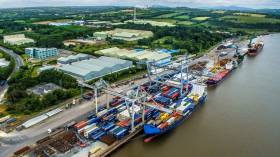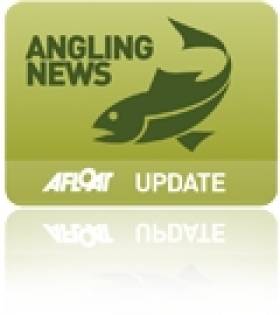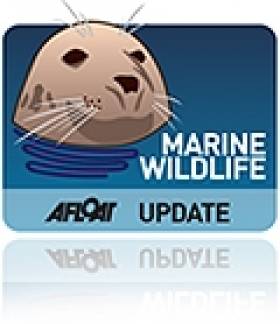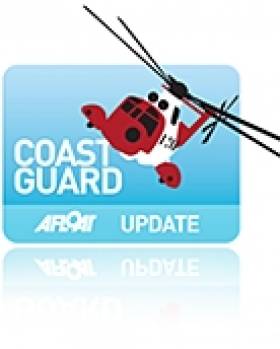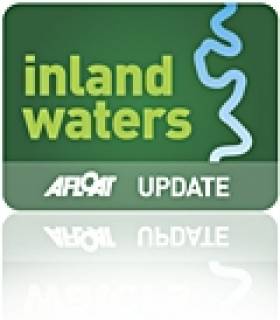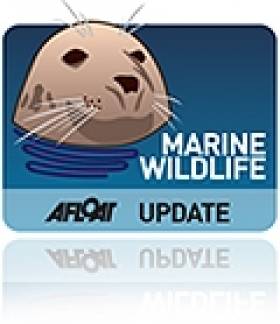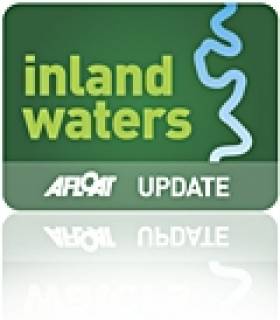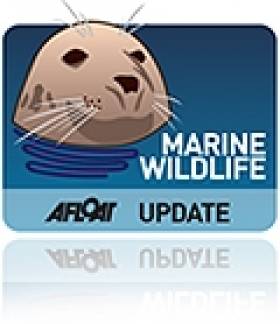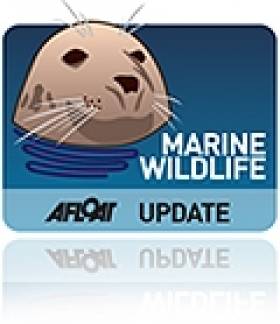Displaying items by tag: study
Port of Waterford Study Shows Zone Provides Almost 1,000 Jobs & Turnover Approaching €1bn
#Ports&Shipping - The Port of Waterford have commissioned an economic impact study that shows the Belview Industrial Zone surrounding and including the port (see snapshot) supports 632 full-time jobs directly and a further 348 indirectly, a total of 980.
Last year the 265-hectare zone in south Co Kilkenny generated a turnover of €388m directly and a further €555m through its multiplier effect in the wider economy. Overall this gave an impact of €942.4m.
The Port of Waterford added that the zone’s estimated gross valued added (GVA) last year was more than €190m while the direct regional impact of the Belview Industrial Zone is underlined by a review of those employed within it.
Of 588 personnel reviewed for the study, 317 (54%) live in Waterford, 147 (25%) in Kilkenny and 94 (16%) in Wexford. This makes the Belview Industrial Zone one of the biggest sources of employment across three counties in the southeast with the remainder commuting from counties Tipperary, Laois, Limerick, Kildare and Cork.
The value of goods shipped through the Port annually is estimated at €1.7bn in the 36-page study completed by Raymond Burke Consulting.
Reviewing the sources and destinations for freight transiting Waterford, the report’s authors found the direct impacts of Brexit should be minimal as three-quarters of the Port’s business is with mainland Europe and just 2% with the U.K. Furthermore the Port’s south-east location makes it a good option to facilitate businesses wishing to bypass the UK and provide direct connections with the continent.
Angling Worth €0.75bn to Irish Economy Annually
#Angling - Minister of State for Natural Resources Fergus O’Dowd has warmly welcomed the findings of a new national economic study that reveals for the first time that angling and angling tourism in Ireland are generating a dividend in excess of €0.75 billion within the Irish economy every year.
The study, commissioned by Inland Fisheries Ireland (IFI), shows direct spending on angling in Ireland amounted to €555 million in 2012, with indirect spending worth an additional €200 million and totalling €755 million.
Recreational angling was also found to directly support 10,000 existing Irish jobs, many of which are located in the most peripheral and rural parts of the Irish countryside and along our coastline.
The study - titled a Socio-Economic Study of Recreational Angling in Ireland - found that 406,000 people were involved in recreational angling in Ireland last year, with over 150,000 of these travelling from Northern Ireland and overseas.
Over a quarter of a million Irish adults (252,000) held a fishing rod last year with sea angling along with salmon and brown trout angling seen as the most popular categories where domestic anglers are concerned.
The quality of the Irish angling product, the friendliness and hospitality of the Irish people and our outstanding scenery were cited amongst the principal attractions of Ireland as an international destination for recreational angling. Tourism angling spend is estimated at approximately €280 million on an annual basis.
Speaking at the launch of the study at the Royal College of Physicians on Kildare Street, Minister O'Dowd admitted that the findings had come as a surprise, as this was the first national survey which was able to put a value on angling to the economy and that up till now the economic significance of the sector had been greatly underestimated.
The minister said the study not only highlighted to him the major economic impact that angling makes to the Irish economy, but it also underlined the need to continue to protect and nurture this valuable resource, if it is to be allowed to develop and grow to achieve its full potential.
“The results contained in this report are significant,” he said. “Angling, as a recreational pursuit, is a major contributor to the fabric of Irish life in all parts of the country, particularly in rural and peripheral areas.
"From the industry perspective, the strategic development and marketing of our angling product is essential and has been given new impetus in light of what we now know about the visiting and spending patterns of anglers and what is important in drawing them here.
He added that it is "equally clear to me that maintaining a strong focus on the protection and conservation of this vital resource into the future is absolutely key if we are to properly sustain and grow these benefits to anglers, angling businesses and the Irish economy.”
The study, commissioned by IFI in early 2012 and undertaken by consultants Tourism Development International, was undertaken to help underpin effective strategic planning and decision making in respect of the angling product’s development and marketing.
IFI chief Dr Ciaran Byrne commented at the launch that the national fisheries agency “will now review the results of the survey in conjunction with our stakeholders. Clearly fish stocks and fish habitat must be conserved, protected and developed. Angling businesses must be given every opportunity to win business and secure and grow the jobs within the sector.
"IFI is committed to these goals and together with our stakeholders and the support of Government, state agencies and a new angling marketing and development plan we will achieve them.”
The study is available to download from the IFI website HERE.
'Very Rare' Sighting of Albatross in Irish Skies
#MARINE WILDLIFE - Staff and students from the Galway-Mayo Institute of Technology spotted an black-browed albatross in what was a "very rare" sighting of the bird in Ireland's skies, The Irish Times reports.
The group was on board the State marine research vessel Celtic Explorer off the southwest coast when they witnessed the albatross, also known as a Mollymawk, which is noted for its dark eye stripe.
The black-browed albatross is normally restricted to the Southern Hemisphere, but Birdwatch Ireland's Niall Hatch said it has been spotted from headlands in Ireland in the past.
As previously reported on Afloat.ie, the GMIT group were among a party of 20 scientists from Ireland, Nothern Ireland and Scotland carrying out a study of whales, dolphins, seabirds and plankton in the Atlantic.
Unified EU Coastguard On The Cards
#COASTGUARD - Greater co-operation between Europe's coastguard organisations is inevitable, according to the Irish Coast Guard director.
Chris Reynolds was speaking at Search and Rescue 2012, the EU Heads of Coastguard conference in Dublin last Thursday, at which he outlined a feasibility study being conducted by the European Commission on a standardised coastguard service across Europe.
As Shephard Media reports, Reynolds admitted that some challenges stood in front of any effective change in the sector, noting that SAR policy at member state level is often spread across many departments.
But the Costa Condordia disaster off the Italian coast recently may focus governments to develop a "sense of urgency" on the issue, he said.
In the keynote address at the conference, Italian coastguard chief Giuseppe Troina said it was fortunate that the death toll in that incident had not been much greater, emphasising that more than 4,000 people survived the cruise ship's sinking.
The Irish Times has more on the story HERE.
NI Faces Big Fine Over Horse Mussels
#MARINE WILDLIFE - Northern Ireland faces a whopping £8 million (€9.6 million) fine from the EU over its failure to protect horse mussels.
According to BBC News, "little has been done" to protect horse mussel reefs in Strangford Lough despite promises from two government departments as far back as six years ago.
Last year Afloat.ie reported on a study from Queen's University Belfast that revealed the extent of damage to horse mussel reefs in the lough by fishing activity.
Strangford Lough is officially protected as a Special Conservation Area and a Marine Nature Reserve, as well as an Area of Special Scientfic Interest, but as BBC News states, "in reality there has been little protection put in place".
Horse mussels are pivotal to the lough's ecosystem, as some 100 other species rely on the reefs formed by the mussels in the seabed for their habitat.
NI officials now have just a few months to persuade the European Commission that they are taking strong action to protect the species, otherwise they will be charged with breaking EU directives.
BBC News has more on the story HERE.
River Barrow Has Potential for Tourism
#INLAND WATERWAYS - A new study on the River Barrow and its environs recommends the development of "activity hubs, tourist trails and new angling and boat facilities", The Irish Times reports.
Waterways Ireland and Fáilte Ireland commissioned the Barrow Corridor Recreational, Tourism and Commercial Identification Survey to find ways to exploit the area's "undeveloped potential" for tourism.
The survey covered the river itself as well as its estuary and the Barrow branch of the Grand Canal. Its findings pointed to a number of areas where development is already being actioned, such as in boating and cruising, nature and wildlife, and angling.
Environment Minister Phil Hogan, who launched the study in Carlow yesterday, hailed the co-operation of the agencies and county councils involved.
The Irish Times has more on the story HERE.
North Atlantic Killer Whales Feeding on Sunfish Says IWDG
#MARINE WILDLIFE - The Irish Whale and Dolphin Group (IWDG) has recorded another first for the North Atlantic, with evidence showing that killer whales are feeding on ocean sunfish.
Mark Holmes of the Natural History Museum confirmed the presence of parasites unique to the sunfish found within the carcass of a female orca stranded in Doohooma in Co Mayo.
"These parasites did not originate from the whale's stomach, but came from the prey which it had eaten," said the IWDG's Conor Ryan.
"This was confirmed when the partially digested bones in the stomachs were eventually identified as those of a sunfish beak."
The discovery may explain a recent study of UK waters which found sunfish taking unusually deep dives, possibly to avoid cetaceans and other large predators.
#INLAND WATERWAYS - Inland Fisheries Ireland (IFI) has announced the results of studies on the genetic makeup of brown trout stocks in the Suir and Boyne river catchments.
These studies form part of a wider scheme looking at Ireland's larger riverine catchments - assisted by the Office of Public Works, geneticists from UCD and trout anglers across Ireland - and involve a chemical analysis of scale samples from fish known as 'micro-satellite DNA analysis'.
The results from the Suir and Boyne are described by IFI as "quite amazing" and "of significant value" to managing the fisheries in these areas.
In both catchments, the first step saw trout stock samples of young fish examined genetically, and they were shown to be discrete - in other words, fish from any given tributary were found to be genetically different to those from others.
The next step involved samples of adult fish from the main river, contributed by anglers, which were then related to the different tributary genetic types.
Summary results from the Suir and Boyne show that there are respectively seven and five distinct families of trout in the catchment area; that most fish born in tributaries migrate to the main stem till adulthood before returning to their tributaries to spawn; that numbers migrating from individual tributaries are variable, but fish don't cross into adjacent catchment areas; and that there movement of young trout along the river system is "extraordinary", with fish often migrating from near the source to the mouth.
More details on findings for the Suir catchment and Boyne catchment are available on the IFI website.
Second Fin Whale Stranding for Sligo
#MARINE WILDLIFE - Sligo County Council is considering its options for disposal after the county's second whale stranding of the winter, when a 60ft male fin whale was beached at Agharrow.
A spokesperson told the Sligo Champion that the whale was in an area known locally as Staid Abbey, lying on a smooth rock ledge that slopes down towards the sea, and is a difficult point to access - particularly in the present stormy conditions.
As previously reported on Afloat.ie, a whale carcass was washed up at the end of last month not far from Agharrow at Raughley. The Irish Whale and Dolphin Group (IWDG) has confirmed that this was the first validated stranding recorded of a fin whale in Co Sligo.
That whale had its flesh removed for fertiliser, while its bones were studied by PhD students from NUI Galway ahead of being buried in a nearby field to allow for the natural decomposition of remaining flesh before future preservation.
Protection Needed for Horse Mussels in Strangford Lough
A new study from Queen's University Belfast has revealed the extent of damage to horse mussel reefs in Strangford Lough, the Bray People reports.
The report highlighted a lack of action on the part of the NI government departments responsible for the lough, which is designated as a Special Conservation Area and a Marine Nature Reserve.
According to BBC News, previous studies in the late 1990s showed that many of the mussels were dead, and urged regulatory action to protect the remainer that did not come to pass until earlier this year, when two non-disturbance zones were declared to reduce pot fishing in the reef areas.
On top of the continued ban on mobile fishing gear, the new study recommends "total protection" in areas of the lough where fishing activity is affecting the recovery of horse mussel reefs, and notes that "signs of natural recovery might be expected within 20 years... provided there is no further disturbance".



























